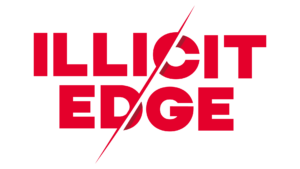IE Insights: Case Study – 2018 Societe Generale Enforcement Action
In 2018, the French multinational bank, Societe Generale, faced an enforcement action for apparent violations of U.S. sanctions and anti-money laundering regulations. This case study will explore the details of this enforcement action, the response from Societe Generale, and the broader implications for the financial industry.
Background
Societe Generale (SocGen), one of the largest financial services groups in Europe, allegedly processed billions of dollars’ worth of transactions through the U.S. financial system that were either sent to sanctioned countries or involved sanctioned individuals or entities, namely those connected with countries like Iran, Cuba, and Sudan.
The Charges
The enforcement action arose out of two sets of wrongdoings. The first involved violations of U.S. economic sanctions against Cuba. Between 2004 and 2010, SocGen processed transactions involving Cuban entities that were passing through U.S. banks, totaling over $13 billion. The transactions involved SocGen’s internal credit facilities and a series of credit agreements involving a Cuban state-owned entity.
The second set of charges pertained to deficiencies in SocGen’s compliance program, specifically related to anti-money laundering regulations and know-your-customer (KYC) rules. It was discovered that SocGen was not adequately screening or identifying transactions that raised red flags in connection to money laundering or terrorism financing.
Penalties
As a result of the enforcement action, SocGen agreed to pay a total of $1.34 billion to multiple U.S. enforcement agencies including the U.S. Department of Justice, the Federal Reserve, the New York State Department of Financial Services, the Office of Foreign Assets Control, and others. This settlement represented the second-largest penalty for violating U.S. economic sanctions, showcasing the severity of the charges.
Response and Remedial Actions
In response to the enforcement action, SocGen took steps to address the identified deficiencies. The bank made improvements to its compliance program, including strengthening its KYC procedures, implementing more robust sanctions screening software, and improving the training program for its compliance staff.
Furthermore, the bank took steps to cooperate with authorities, including undertaking a thorough internal investigation and providing valuable information to U.S. authorities. The extent of cooperation, timely response, and remedial measures were considered in the enforcement action, thus reducing potential penalties.
Implications
The enforcement action against SocGen had wider implications for the banking and finance industry. It served as a stark reminder for financial institutions of the necessity of having a robust compliance program in place to adhere to U.S. sanctions and anti-money laundering regulations. Banks around the world were urged to review and enhance their internal control systems, emphasizing the need for adequate due diligence and KYC procedures.
This case also highlighted the importance of a cooperative approach when facing regulatory scrutiny. The reduction in SocGen’s penalties due to its proactive cooperation demonstrates the value of transparency with regulatory authorities.
Conclusion
The 2018 Societe Generale enforcement action emphasized the global reach of U.S. sanctions and anti-money laundering regulations, irrespective of where the financial institution is based. The financial penalties underlined the severity and the economic consequences of non-compliance. The case underscores the necessity for international banks to maintain rigorous internal controls and compliance systems, to conduct regular audits of these systems, and to cooperate fully with regulatory authorities when violations are identified.
